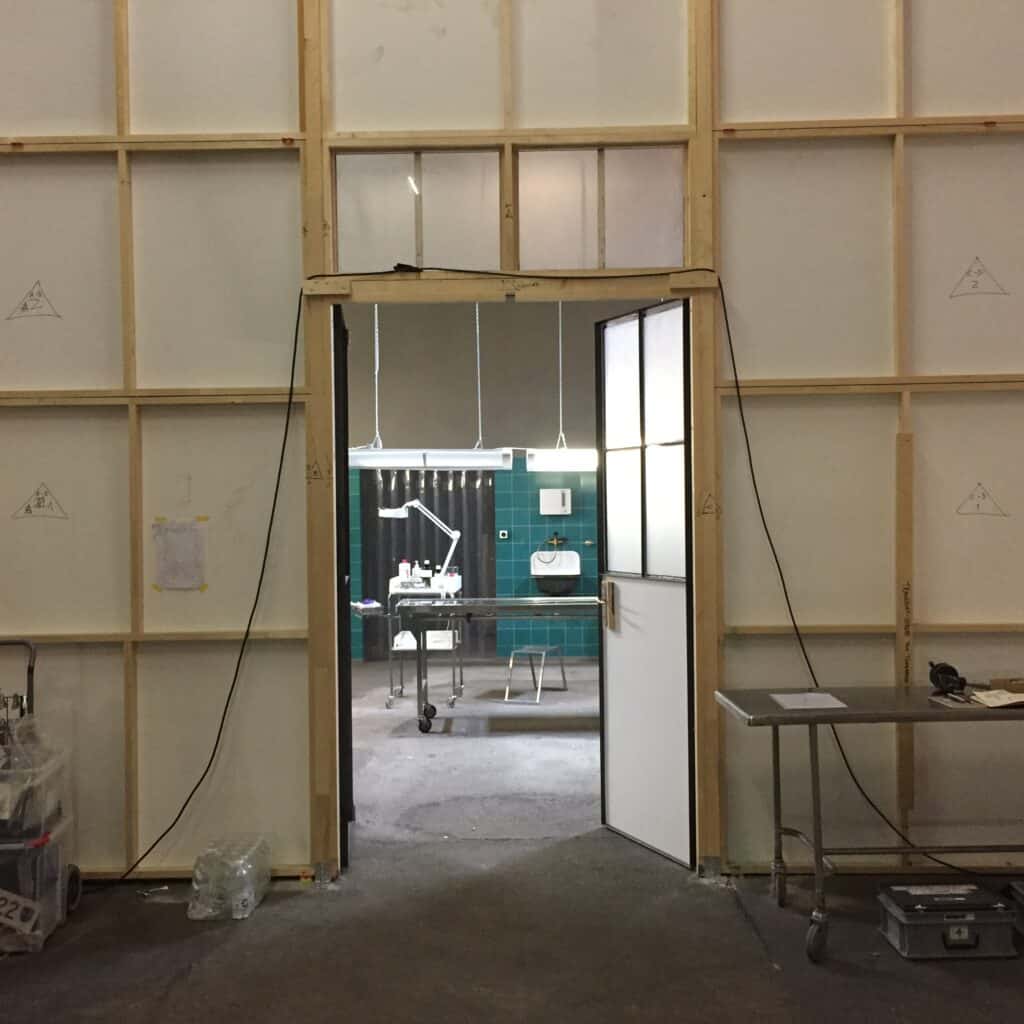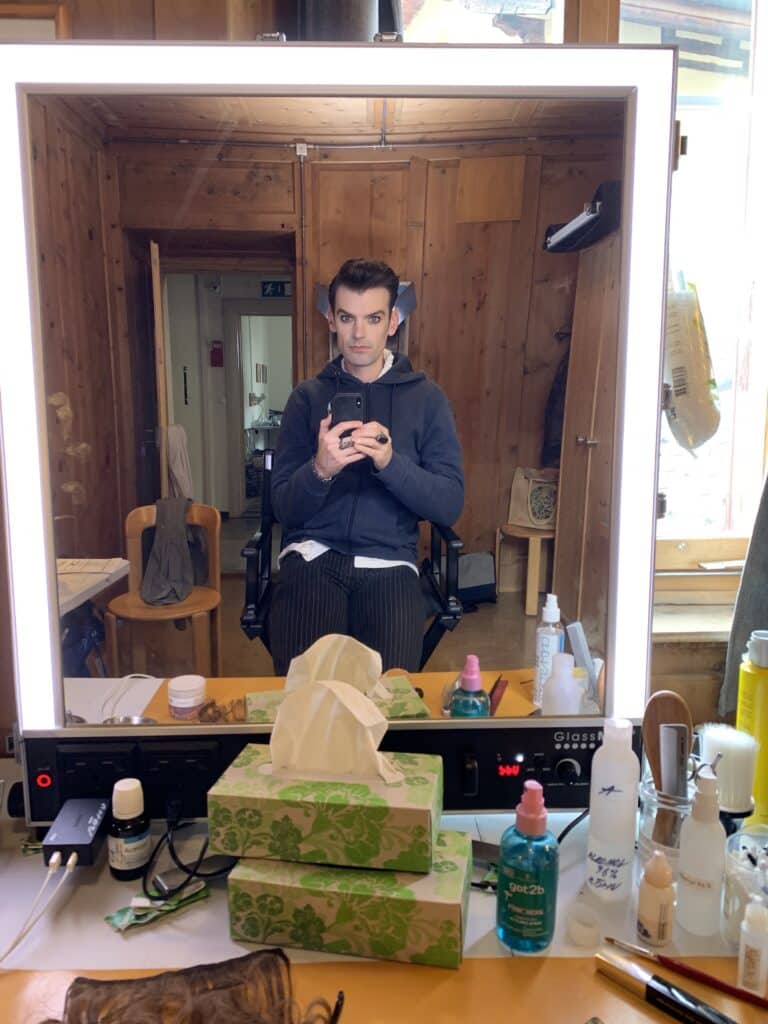Letztes Update: 28. September 2023
In our everyday life we meet actors and actresses again and again. Be it in a YouTube ad, a Netflix series, or an announcement in a public space. But few really know how much an actor actually earns in Switzerland. Since I have trained as an actor and have already acted in various productions, in this article we will look at the different fields of activity and salaries of actors.
And because the topics of social security and pension provision always resonate with the topic of wages, we’ll take a closer look at these points here as well. As an actor, you often freelance. This means that you have changing employers and are only employed on a temporary basis. This deviates significantly from the normal case on which social insurance is based. Thus, there is a great risk of falling between the chair and the bench and not being sufficiently protected either in old age or in the event of a stroke of fate. This makes it all the more important to take care of pension provision on one’s own responsibility.
By the way, the term freelance does not officially exist. In labor and social security law, actors are considered employees and not self-employed.
Gage film – television and cinema
Very few TV stations produce films or series themselves, but commission them from production companies. So the client is often a production company and not directly a TV station.
Film actors are usually paid a daily fee and are not employed on a monthly or hourly basis. You only receive this daily fee if you have actually shot on the day. It doesn’t matter if you’re shooting one scene and you’re only on set for maybe three hours, or if you’re in every scene and you’re on set for 10 hours.
What is included in a daily fee?
Let’s make an example: For a ninety-minute film, shooting takes about 30 days. So the entire shoot extends to about one and a half to two months. The number of shooting days depends, of course, on the size of the role. Let’s take Anna and Tom as an example. Anna plays a leading role and has 28 shooting days. Tom has a small role and only shoots on two days.
Reading, costume and make-up rehearsals take place before filming, and after filming sometimes certain scenes have to be re-synchronized. All these appointments are not remunerated separately. If Anna lives nearby, she is picked up by production vehicles in the morning and driven home again in the evening, or she travels to and from the site herself. If the filming location is more remote, the production company will provide her with a hotel room.
Let’s assume that Tom doesn’t live nearby and since he has a full day of shooting, he has to arrive at the hotel the day before. This day is not compensated extra. All other preparatory work such as text learning, role study, etc. is also not remunerated separately. In Germany, the term ” shadow days ” has become established for this. Anna gets paid her daily fee 28 times and Tom twice. Thus, for Tom, the ratio of unpaid days to actual shooting days is less than satisfactory. For Anna, with her 28 days of shooting, things look better.
Lunch, drinks and snacks in between are organized by the production company, so they are free. If you stay in a hotel and the dinner is not organized by the production, you will receive so-called diets. This is a fixed amount that you can dine on your own.
Amount of daily fee
The amount of the fee depends on various factors, such as the actor’s notoriety, the size and type of production, and the negotiating skills of the acting agency. The professional association for performing arts SzeneSchweiz has published a fee recommendation for TV and cinema productions. It recommends a minimum fee of CHF 1,400 per day for beginners and CHF 1,800 per day for experienced actors. As the name suggests, these are only recommendations, often the fee is much lower.
The professional association of professional filmmakers SSFV has determined the following daily salaries in a 2021 survey:
- Men all ages and experience: CHF 1’554
- Women of all ages and experience: CHF 1’158
As this survey shows, equal pay has not yet been achieved in the acting industry either. In addition, there are usually more roles for men than for women in both film and theater.
A daily salary of around CHF 1,500 sounds like a lot at first glance, but actors are usually not seamlessly employed. So if Anna earns CHF 32,424 (28 x 1,158; gross) for the entire shoot, that has to last not just for the two months, but until the next project. That’s why many actors and actresses also pursue a part-time job, which brings them a certain fixed monthly salary and thus a bit more security.
If actors are represented by an agency, approximately 10% of the gross fee goes to the agency as agency commission.
Gage theater
In the theater, you are either permanently employed by a house and receive a monthly salary, which is the case at a municipal theater, for example, or you are a freelancer and are only employed for one production or a certain period of time at a time. Freelance actors usually receive a flat rehearsal fee and are then paid per performance played.

The Swiss Stage Association has worked with the professional association for performing arts SzeneSchweiz to develop minimum salaries for permanent employees at theaters. In the 22/23 season, these range from CHF 4,000 (e.g. Lucerne Theater) to CHF 4,400 (Zurich Schauspielhaus).
The professional association of freelance theater professionals ACT published guideline wages and salaries in 2016. The gross guideline wage for a rehearsal week at that time was CHF 1,250 and the gross fee per performance was CHF 500 (CHF 400 for several performances at the same venue). In the meantime, the association is called t. Theaterschaffen Schweiz and the revised guideline fees should be available in the fall of 2023.
But I have also seen contracts where the flat rate for six weeks of samples was only CHF 1,000. Again, it depends heavily on the name recognition of the actor, the size of the production and the number of performances.
Fee advertising
In advertising, actors can either stand in front of the camera or just speak the text for commercials. If you see the face, the recognition value is naturally higher and you need significantly more preparation time for a commercial. A shoot also usually takes longer than a sound recording, which is why the fees are correspondingly higher. As a SpercherIn, on the other hand, you can easily read the text in the recording studio.
Actors
The professional associations SSFV, t., SzeneSchweiz and SSRS have issued recommendations on acting fees and buyouts for commercial productions. Accordingly, beginners and actors in training must receive at least a daily fee of CHF 1,500. Again, casting, costume and makeup rehearsals, and travel are not compensated separately.
If the commercial is actually broadcast, which is not always the case, so-called compensation for use is due in addition to the fee. These are also called buyouts. For example, if a commercial is broadcast on national television, the actress receives a 100% buyout in addition to fee, according to professional association guidelines. If the spot is also run in theaters (+75%) and as an online ad (100%), an additional buyout is due per medium. An example: A beginner receives a fee of CHF 1’500 and additionally a buyout for the three media of 275% of the daily fee, i.e. CHF 4’125, makes a total of CHF 5’625. If the commercial is broadcast again the following year, the buyout of CHF 4,125 will again be due.
In advertising, the fees have fallen sharply in recent years. I often get requests with a daily fee of CHF 1’200 and an all-in buyout for all media of 100%. With ten years of professional experience, I would no longer describe myself as a beginner.
Speaker
According to the tariff list of the Association of Professional Speakers VPS, a fee of CHF 450 is due for a commercial in a visual medium. For a radio commercial, the salary is CHF 250. Travel less than 20km will not be reimbursed. Speakers who are not affiliated with the VPS have their own rates. For smaller radio stations or recording studios from abroad, the fee is much lower.
Speakers are also booked for documentaries and training films, radio plays or announcements in public spaces. More and more companies are using text-to-speech solutions, putting further pressure on fees.

Social insurances for actors
As mentioned above, most actors are not self-employed because they do not have a great deal of freedom in the design, execution and scheduling of their work. They are bound by instructions and the employer creates the shooting, rehearsal or performance schedule. Employers must therefore pay half of the social security contributions.
AHV/IV/EO (1st pillar)
Employers in the fields of dance and theater productions, orchestras, phonographic and audiovisual productions, radio and television as well as schools in the artistic field must also collect AHV/IV/EO and ALV contributions if the salary does not exceed CHF 2,300 per year and employer.
The deductions are made by the employer as for any employee and the contribution rate is also 10.6%.
BVG (2nd pillar) general
Briefly, the basics: If you are insured with an employer in the AHV and receive an annual salary of at least CHF 21,510 (until 2022) or CHF 22,050 (from 2023), you are compulsorily insured in the second pillar. This is also called the entry threshold.
There are a few exceptions to this, for example, employees with a fixed-term employment contract of three months or less are not subject to the obligation. As you read above, actors often work in temporary jobs with changing employers. They would therefore hardly be able to make provisions under the second pillar.
Thanks to Art. 46 BVG entitled “Gainful employment in the service of several employers”, an employee who is not subject to compulsory insurance may join a pension scheme himself. Thus, the annual salary no longer applies per employer, but is now considered cumulatively.
BVG (2nd pillar) Actors
Various professional associations have joined forces and set up pension foundations in which actors can voluntarily join. For actors, for example, these are the Charles Apothéloz Foundation Professional Pension Plan for Cultural Professionals (CAST) or the Pension Foundation Film and Audiovision – Fondation de Prévoyance Film et Audiovision (vfa – fpa). It is therefore not the employers who are affiliated with this pension fund, but the employees. The various employers then settle directly with the respective pension fund.
Another special feature is the constant contribution rate of 6% each for employers and employees. With a “normal” pension fund, the amount of retirement credits increases with age.
Amount of retirement credits:
| Age | Percentage of the coordinated wage |
|---|---|
| 25 – 34 | 7% |
| 35 – 44 | 10% |
| 45 – 54 | 15% |
| 55 – 64/65 | 18% |
Before concluding the contract, the actor must actively inform the employer that he is affiliated with a pension fund. So it’s important that you are informed about pension topics and take personal responsibility.
Transparency and disclaimer
I was not paid by anyone for this blog post, it reflects my subjective opinion.
If you open accounts or business relationships, order products or services through my links and codes, I may receive a commission for doing so. However, you will not suffer any disadvantages such as higher prices or the like. The terms and conditions of the respective providers apply. Affiliate links are marked with a *.
Investments are associated with risks which, in the worst case, can lead to the loss of the capital invested.
All publications, i.e. reports, presentations, notices as well as contributions to blogs on this website (“Publications”) are for information purposes only and do not constitute a trading recommendation with regard to the purchase or sale of securities. The publications merely reflect my opinion. Despite careful research, I do not guarantee the accuracy, completeness and timeliness of the information contained in the publications.



